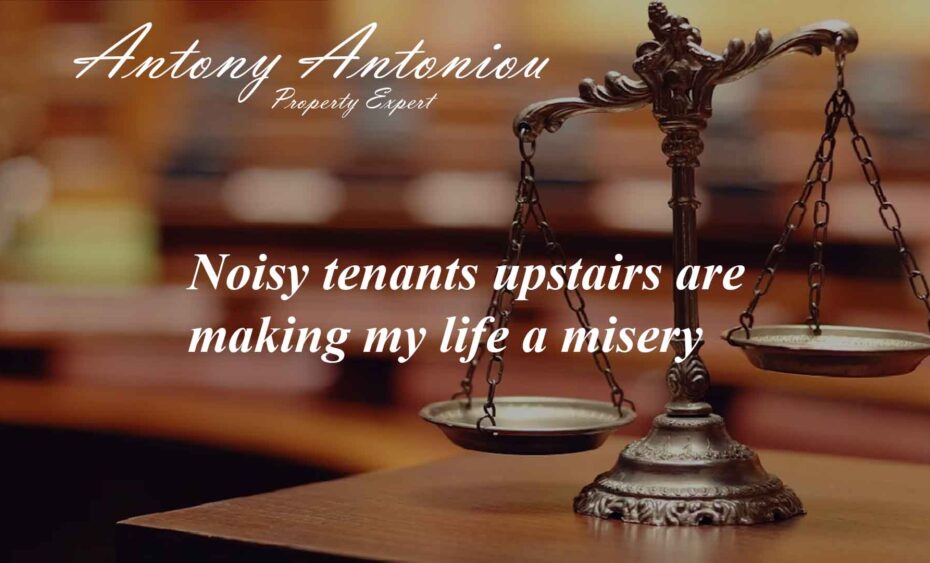Noisy tenants upstairs are making my life a misery
Q. We reside in a block of two- and three-bedroom flats. The bedrooms are above each other, and the lounges are above each other.
The elderly lady next door to us sold her two-bed flat to someone who turned out to be a property developer. She didn’t know that at the time, although at the last minute, he did knock £30,000 off the agreed price.
He wrote to the neighbours with photos of his family introducing themselves, saying there would be noise as it needed decorating and new kitchen fittings. This came as a surprise as the building is only 10 years old.
Subsequently, we found he had knocked the kitchen through into the lounge, thereby making a third bedroom. The worst part was he removed the carpet from what was the lounge. This has now become a kitchen living area, and he has moved in tenants. There is noise transmission into the lounge of the flat laid out identically directly below.
Several of the leaseholders had bought out the freehold, and I reported this change of use to the chairman of the freehold company. He passed it to the chairman of the residents’ management company.
They sought legal advice and were advised it would be most unlikely that the developer could be made to revert the layout.
The lady who lives below them suffers from the noise above. The developer says his tenant and their two children are being victimised, and it is up to the lady in the flat below to make representations about the noise to his tenants. This is difficult as the tenants speak little English.
I have just taken over as chairman of the RMC and have the very irate lady in the flat below to deal with.
A. I notice that you mention both the “freehold company” (the company owned by several of the leaseholders) and also “the RMC.” I assume the “RMC” is either a management company referred to in the lease or a right to manage company which has acquired the right to manage from the freeholder under relevant legislation.
It is important to understand the situation since you need to take action against whoever is in a position to enforce compliance with the covenants. There are several potential remedies in your situation:
1. It might be possible for the leaseholder who is suffering from noise to bring a claim directly against the owner of the flat above without mentioning the lease at all. According to the general law of nuisance, a person is not entitled to use their property in a way that causes undue disturbance to another owner. The remedy here would be a claim for damages and an injunction to stop the noise nuisance.
2. Some leases have a provision stating that the flat must be carpeted. It could be explicit in the lease (and, in certain circumstances, it can be implied) that one leaseholder can enforce the covenants directly against another. In this case, the leaseholder experiencing the nuisance could bring a direct claim against the owner above, requiring them to have the flat carpeted.
3. Finally, most leases provide that, subject to paying the freeholder’s or management company’s costs, you can demand the freeholder or management company to take enforcement action against a breaching leaseholder. Admittedly, these provisions are rarely exercised due to the requirement to cover the freeholder’s costs, but it is often the most effective remedy.
The reason for this is that if there is a breach of an obligation in a lease with the freeholder, the freeholder ultimately has the power to threaten forfeiture of the lease if the nuisance is not rectified. In practice, it is the threat of forfeiture that usually compels leaseholders to comply with their obligations.
If the freeholder or the management company has effectively authorized the works that are causing a nuisance, then the affected leaseholder may have a valid claim against those companies for breaching their obligations.
There was an interesting case in the Supreme Court about a year ago that ruled that where there was an absolute prohibition against alterations, if the freeholder nevertheless authorized alterations, they were in breach of their obligations to the owners of the other flats.
This is a legal overview, not legal advice, you must always seek professional advice before deciding on a course of action.

